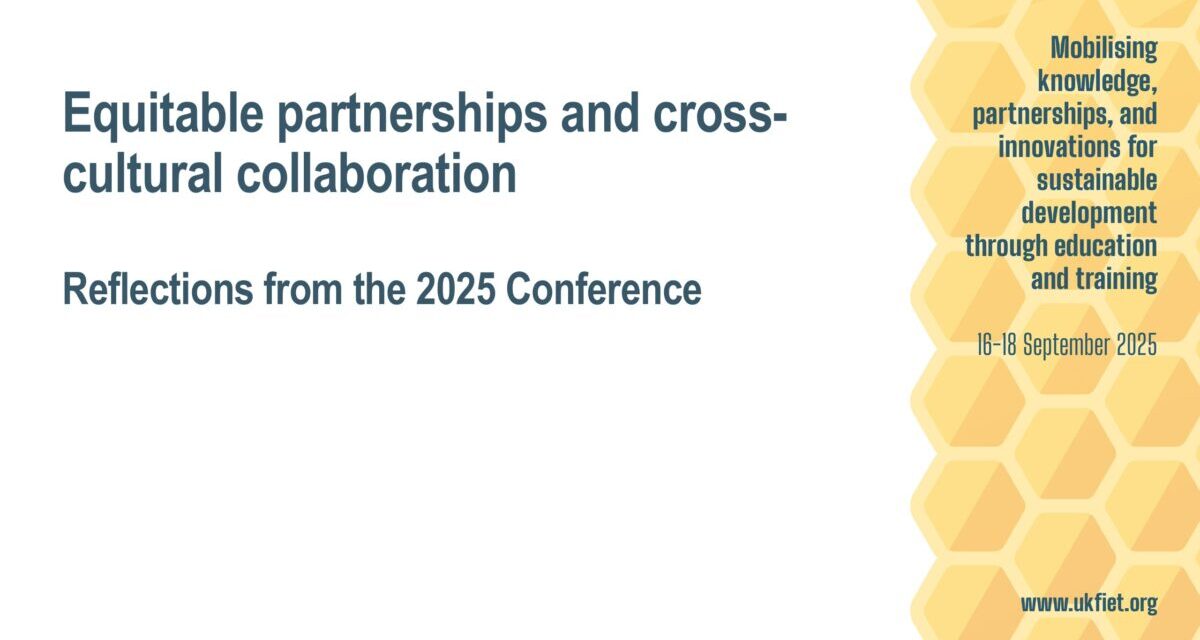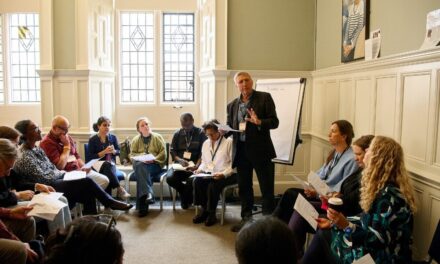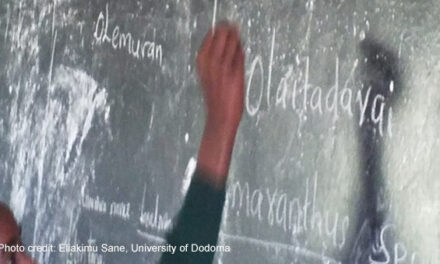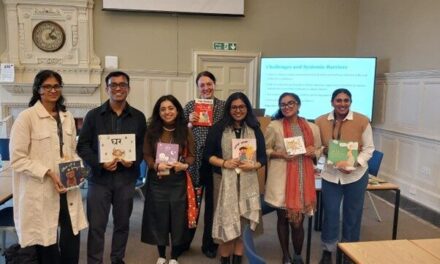Read the summary blog from the convenors of this theme:
Webinar
A webinar series followed the UKFIET September 2025 conference. These one-hour sessions on each of the seven conference sub-themes aim to give a flavour of discussions and amplify sparks ignited at the conference.
Convenors:
- Rhona Brown, University of Glasgow
- Amy Lightfoot, British Council
Panellists:
- Eunice Williams, University of Cambridge
- Pooja Pandey, National Institute of Education Planning and Administration (NIEPA), New Delhi
- Affan Javed, British Council
Rhona Brown opens the webinar with a summary of the aims and brief reflections from the conference. She asks about the nature of partnerships and the ‘architecture of collaboration’. There is an increase of language of co-creation but this is not always partnered with the hard work of collaboration. There was a call for reparative partnerships, recognising the damage done through ‘traditional’ partnerships.
Discussions at the UKFIET conference were intense and confrontational. Some issues require deep reflection and action – we need to find ways to work together.
Amy Lightfoot then chairs the panel and discussion.
Eunice Williams discusses advancing equitable partnerships between the Global South and Global North. She highlights the politics of knowledge – structural control over funding and ownership – which reinforces power hierarchies of research systems. Collaboration brings visibility of knowledge but often reproduces power hierarchies.
True equity requires a shifting of power. Eunice raises the issue of epistemic justice – whose knowledge counts. Global South roles are often marginalised and reduced to implementation rather than co-creation – reproducing inequalities. Eunice outlines a call to action for reimagining equitable partnerships – a call which is forward looking for shared leadership and transformation:
- Equity requires transformation and not reforming.
- We need to promote knowledge systems grounded in local relevance and recognise and value local epistemologies.
- We need to develop mutual accountability frameworks that are grounded in relevance and reciprocity.
- Talking about inclusion is not enough. The goal needs to be about achieving structural and epistemic transformation, i.e. imagining research partnerships as co-created spaces of learning and co-creation.
Pooja Pandey raises the issue about talking about the Global North and Global South as broader categories and the need to go beyond metrics which do not capture equity and inclusion nuances. She outlines discussions during her session at the conference relating to public private partnerships (PPPs) in India. We can’t forget that there is diversity within the private sector and how this affect practitioners. PPPs are often justified by either scale or outcomes in improvement. Yet equity takes a backseat and is not included in outcome mapping processes – who is holding the power in these partnerships?
Affan Javed asks about the politics of knowledge and implementation – partnership frameworks need to factor in inequalities in both. He talks about epistemic justice and whose conversation carries more weight. Where does the power lie and whose knowledge prevails? There is an inherent inequity in co-creation.
He asks what the purpose of education is. Motivation is often based on an economic argument, yet learners face increasing unemployment. Education systems are comprised of different stakeholders, i.e. teachers, parents and students. Yet where are they featured in education system decision-making?




